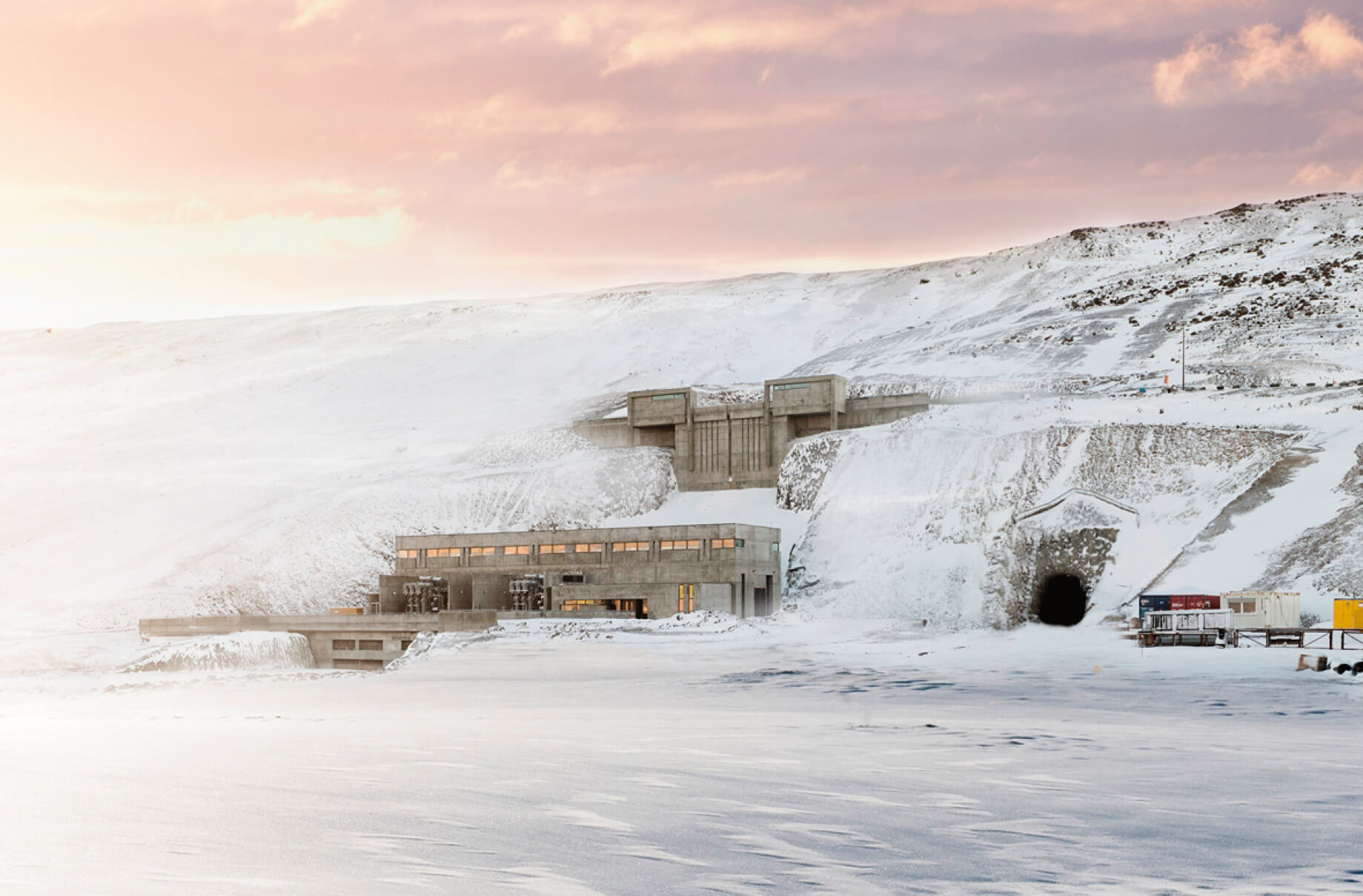Text Sonja Koesling ––– Photography
Captivating waterfalls, steaming-hot geysers and mesmerising northern lights – Iceland is an island of spectacular natural wonders. However, there is more to marvel at than the impressive landscape. Situated in the midst of endless expanses between the Þjórsá and Tungnaá rivers is the Budarhals hydropower plant, a pilot project run by Voith and local company Landsvirkjun that uses artificial intelligence.
Seizing digital opportunities
Artificial intelligence” (AI) is the somewhat sensational collective term used to describe various types of machine learning. It is one of the ten major trends in digitalization and potentially the farthest reaching. Indeed, while automation was first introduced to perform simple tasks, now even demanding office jobs are at risk of being supplanted. But is that really a bad thing? Actually, it isn’t. Digital transformation means seizing digital opportunities so you can offer customers added value. There are advantages to that. For example, if knowledge databases and image processing systems deliver faster and better diagnoses than doctors, that doesn’t mean doctors are suddenly surplus to requirements. What it does mean is that they finally have more time to spend with their patients. The same applies to lawyers, journalists, translators and accountants – all these people can use AI as a tool to complete routine jobs quickly and efficiently. That frees up time for the more creative aspects of their work.
AI is also a weapon in the fight to reverse the shortage in skilled workers. Smart support can help people perform far more demanding tasks than they have in the past. That applies to everything from call centres to software houses and mechanical engineering firms.
What’s more, AI is becoming increasingly easy to utilise, as it is integrated into programs we already use. Less routine work creates more space for ideas. When it comes to their own products, companies can also turn to a growing number of AI tools that dramatically increase the range of benefits, from data analysis to chatbots. That is good for customers and sales.
Thanks to its acoustic monitoring system, the plant can identify anomalies in turbine noises and thus prevent downtime before problems escalate. That is a particularly important task, given that Iceland’s hydropower plants generate some 73 percent of the country’s total electricity supply. The intelligent noise analysis system concealed behind the concrete façade is another piece of evidence that AI has become part of day-to-day business operations.
Speaking about digitalization in traditional mechanical engineering at the 2018
Cideon Management Conference, Dr
Christoph Oestreicher, Senior Manager
Advanced Software Systems at Voith, pointed out that “when artificial intelligence is combined with domain knowledge, data can be used to generate special added value. This saves us time and money and provides new insights that we can use to make processes even better.” The system in Budarhals uses algorithms that recognise changes in the normal noise of the turbines as anomalies. “By continuously recording and evaluating data, we can also optimise the running of the plant,” Oestreicher explains. This ensures maintenance work and upcoming repairs can be planned in a transparent and efficient manner.
AI meets Industry 4.0
“Artificial intelligence is now starting to come into contact with another trend in mechanical engineering – Industry 4.0,” says Prof. Detlef Zühlke, Chairman of the Board of Technologie-Initiative SmartFactory KL e.V. and former head of the Innovative Factory Systems research department at the German Research Center for Artificial Intelligence (DFKI). Industry 4.0 is all about networking people, machines and products in an intelligent way. The ultimate aim of this networking is to enable businesses to optimise both individual, isolated production steps and entire value chains. Whether or not that can succeed depends largely on digital data processing.
“Artificial intelligence is not all that new,” Zühlke explains. “However, unlike in the past, for the first time we now have high-performance computers that can cope with the huge volumes of data we’re producing, analyse it and break it down into useful information.” It is only this processing that adds value and thus makes AI technology appealing – both for the sector in general and, more specifically, when it comes to implementing Industry 4.0. Consultants at Accenture have calculated that AI technologies can help deliver both efficiency gains and new growth. According to the study “The Changing Landscape of Disruptive Technologies” by KPMG International, 26 per cent of the decision-makers surveyed are confident that AI will boost efficiency and productivity. Some 16 per cent think the advantage lies in lower costs. Meanwhile, 10 per cent believe in faster innovation cycles and 9 per cent in accelerated market launches. Zühlke is optimistic: “AI technologies offer the mechanical engineering sector an opportunity to create new business models. If we were to combine augmented reality with artificial intelligence, we could get a red marker to guide us to the precise location of an error in an enclosure containing 20 devices. An AR headset could display a circuit diagram that shows the wearer where particular elements are located, what purpose they serve, and how they are assembled. AI technologies can assist technicians trying to resolve errors by providing localised and relevant information as appropriate to the situation at hand and the people involved.”

